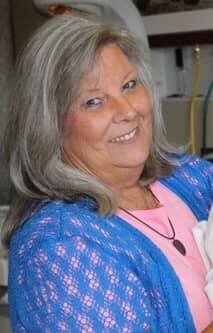Real Life Leading 79: Live B.I.G. in 2020
During the Christmas season, my colleagues and I said goodbye to a dear friend, Mrs. Teresa Hibbs. She was a fellow teacher, a wonderful Godly woman, and a person who lived out the Gospel every day. At her funeral, I was privileged to hear our school’s administrator, Mrs. Greer, share about Mrs. Hibbs’ life. Yesterday at teacher in-service, I was blessed to hear another Mrs. Greer (daughter-in-law of the aforementioned Mrs. Greer) share again about Mrs. Hibbs. What both Mrs. Greers shared I’ve summarized here, as an encouragement and exhortation to all of us to live as Mrs. Hibbs lived: to live B.I.G. Mrs. Hibbs was a teacher for over 40 years at numerous schools, and the students she taught and influenced is numbered in the thousands. She was a football mom, a constant source of encouragement, and a woman who loved her family and friends fiercely.
As Mrs. Greer said, Mrs. Hibbs believed in other people, even when they didn’t believe in themselves. Students who were struggling, or whom other teachers had written off, found a place of comfort and hope with Mrs. Hibbs. She would challenge them and encourage them and ultimately believe in them so much that they couldn’t help but believe in themselves. It wasn’t that she didn’t hold them accountable; she very much did. In fact, perhaps my favorite story I heard about Mrs. Hibbs is one that I just learned of recently. Mrs. Hibb’s father had a physical disability requiring the use of a prosthetic arm and a hook in place of one hand. She often shared stories about him with her students, to help them see that difficulties can be overcome. And on the rare days that the students would continue to complain about their lot, she would surprise them by pulling the prosthesis and hook out of her desk drawer, placing it forcefully on her desk, and not-so-subtly reminding the students that they had much less to complain about than they thought! She believed in them, and in doing so, she showed them just how much they were capable of.
Second, Mrs. Hibbs inspired her students to accomplish much more than they would have dreamt possible. This was seen in the many, many students who came to her in the midst of academic struggles. For much of her career, Mrs. Hibbs worked with these students, often with various cognitive diagnoses or IEPs that had caused the students to struggle and/or other teachers to write them off. But Mrs. Hibbs set about inspiring these students through her love, her compassion, and her accountability. She never allowed students to use their circumstances as an excuse for not giving the very best effort they could. On the contrary, because of her, many students were able to overcome their circumstances and perform at a higher level than ever before, because of the inspiration they got from her. Many of these students attended her funeral, and it was an amazing testimony to her life to see how many kids had similar experiences in her classroom. Mrs. Hibbs inspired them, and it changed their lives.
Finally, Mrs. Hibbs gave to her students. She gave them her time, her energy, her compassion, her love, her joy, and her hope. She gave them these things when they didn’t have much of it themselves. She was often found at school very early, playing her praise and worship music, and simply being available in case anyone needed to stop by and chat. She gave of her breaks, and her meal times, and her planning periods, to talk with students and just listen to what was going on in their lives. She gave of herself in ways that many students had never experienced from a teacher before, and as a result of that, they knew that she loved them. And this love was transformational for too many of them to count. Because Mrs. Hibbs gave, many others also learned to give.
If you didn’t have the privilege of meeting and knowing Mrs. Hibbs, you missed out on a wonderful woman and a true servant of others. If you did have the joy of knowing her, be thankful, remember her, and pay tribute to her memory by living as she did: live B.I.G. in this new year, and in every year after.
**Special thanks to Mrs. Cindy Greer and Mrs. Meredith Greer for sharing the above message. The acronym is not mine, nor are the stories, but any mistakes or omissions are entirely my fault.**








